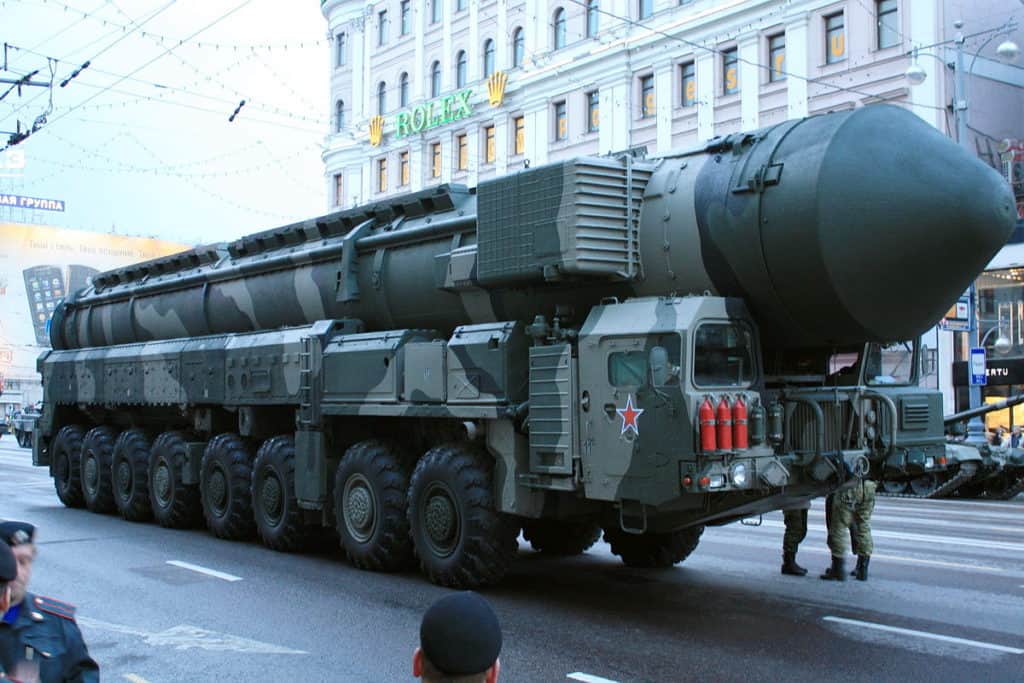
5. Declining Soviets Considered Preemptive Strikes
For a period of time in the 1950s and early 60s, it looked as if the Soviet Union might actually overtake the United States. Yet by the 1970s cracks were starting to emerge in the system, and by the 1980s the Soviet Union was falling far behind the USA. Further, when Reagan came into office in 1981, his aggressive rhetoric only increased tensions.
The Soviets devised an elaborate computer system to compare Soviet strength to the United States. The system considered a huge range of factors. Soviet leaders made the decision that if Soviet power should ever fall below 40%, they would have to consider a preemptive strike. By the 1980s the metric had dropped to 45%.
In November of 1983, the United States and its allies launched a massive military exercise “Able Archer”. This exercise was seen by many within the Soviet Union as a potential cover for a preemptive strike. Soviet forces prepared to launch a massive attack of their own, but decided to wait for the USA to make the first move. Luckily, it was just an exercise.
Interestingly, even as the Soviets mobilized in response to the threat, the Americans held firm. Most American leaders believed that the Soviet Union was trying to make its own show of force and intimidation. At the time, many military leaders didn’t realize how weakened the Soviet Union really was, and how desperate it was becoming. As such, the USA and its allies continued with their war games, nearly provoking a nuclear war.
Ultimately, it was a huge miscalculation on the part of American leaders. While the United States was busy making an elaborate show of force, the Soviet Union was already sinking into collapse. Its economy was highly unproductive, and its technology was falling farther and farther behind. The Soviets were thus scared and the upper echelon’s power was slowly waning.

